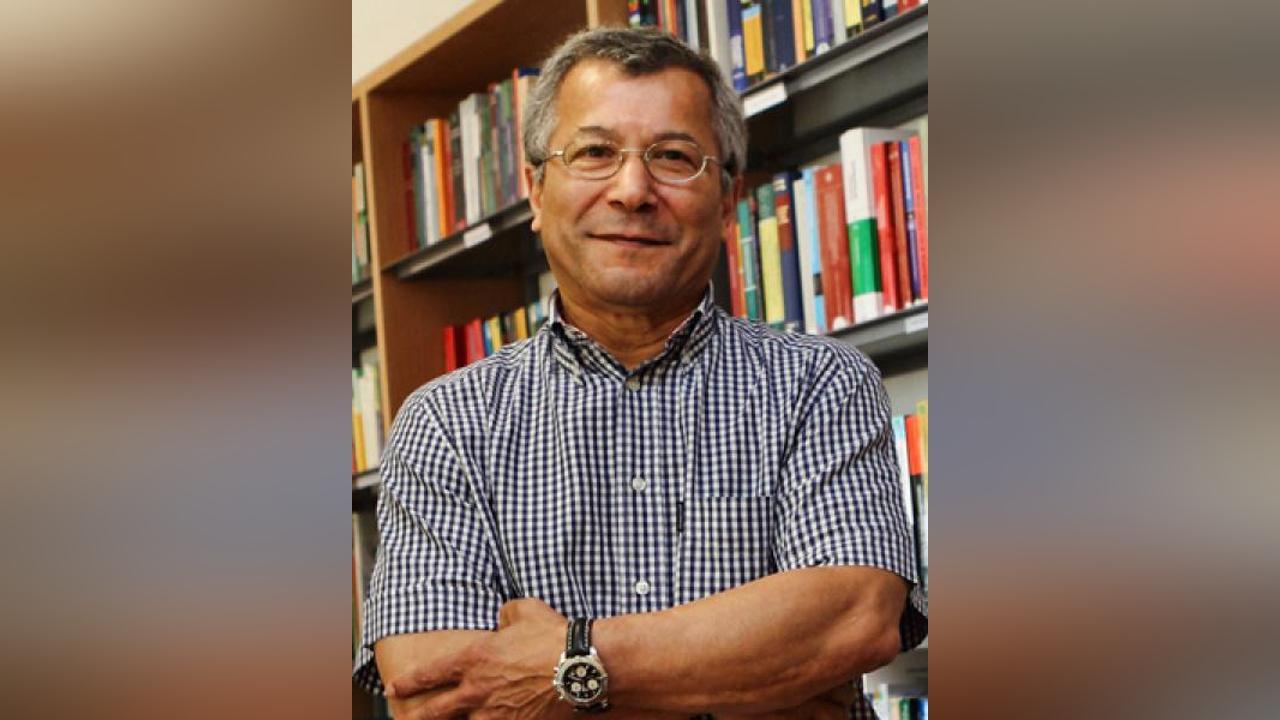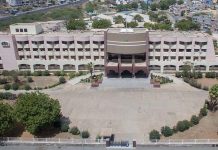Africa-Press – Cape verde. The political earthquake has been going on for a few months now, but the aftershocks are still there and it is not known when they will stop. While we await the Court of Auditors’ decision, criticism of the justifications given by the presidency is increasing, from the most radical to the least extreme. After all, according to constitutionalist Wladimir Brito, in this process everyone made mistakes.
“I think there are reciprocal failures,” Wladimir Brito told Expresso das Ilhas. “The President of the Republic sent a request for regulation of the matter and the government put it in a drawer. On the other hand, the President of the Republic had no legal basis to grant a salary to women, because nothing was regulated.”
However, as the constitutionalist and university professor recalls, previously, during the presidency of Jorge Carlos Fonseca, the issue had been raised by the then First Lady Lígia Fonseca and there was no regulation on the matter. At the time, José Maria Neves was Prime Minister, and he considered that the issue was not urgent.
The current controversy arose in December 2023, when it was made public that the First Lady received a gross monthly salary of 310,606 CVE, paid by the Presidency of the Republic. At the time, and although acknowledging that there was no formal contract with Débora Carvalho, the Presidency justified the salary on the basis of maintaining the same salary status that Débora Carvalho had in her original professional framework.
Days after the controversy broke out, the President announced the suspension of payment of the First Lady’s salary, as well as other benefits, until the situation was regulated by law.
“The first lady is not a constitutional figure. She does not exist,” stresses Wladimir Brito. “In other countries, there are first ladies who have taken on an auxiliary role to their husbands. She has no appointment, constitutional status, or even legal status.”
“I don’t know of any First Lady who works for the Presidency of the Republic,” the constitutionalist continues. “They can have an office, where they usually help their husbands with some social causes, because this idea has been created that the First Lady has to be a kind person, to carry out social actions, which she probably never did before, but she becomes kind. If she accepts this, she has her own office, plans her social actions, creates her own secretariat and from there does what she has to do. But never with a public salary because she is not a public servant. Giving a salary to the lady means creating a public office, occupied by only one category of people – the wife of the President of the Republic.”
“You have to be very careful about what you say and do regarding the First Lady’s theories,” advises Wladimir Brito. “Otherwise, what we’re going to have is a huge mess. Dr. Lígia, for example, never stopped working as a lawyer while she was the president’s wife. I think that Commander Pedro Pires’ wife never stopped working when she was the president’s wife. Aristides Pereira never paid his wife a salary. There is a tradition of women maintaining their professional status.”
IGF and Court of Auditors
On the 12th of this month, the report of the Administrative and Financial Inspection of the Presidency of the Republic was released – carried out following a request from the Presidency itself – which, among its conclusions, considered that the salary received by the First Lady, Débora Katisa Carvalho, for two years, did not have a legal framework and should therefore be returned. The same applies to the salary awarded, over 20 months, to the legal advisor to the President of the Republic, Marisa Morais, who has since been dismissed from her post.
The return of the amounts, worth more than 5 thousand contos and more than 2 thousand contos, respectively, was merely a recommendation that will have to be implemented by the Court of Auditors, as Expresso das Ilhas wrote in edition 1185, on 14 August.
On the 24th, it would be the President of the Republic’s turn to react, in a press conference without the right to questions, to say that the First Lady was already working in a national company and that the remuneration received had been returned, in full, to the State coffers.
In the same communication, José Maria Neves attacked the government, which shared responsibility for the entire situation. “Everything was done transparently and in the belief that, within the scope of institutional loyalty and cooperation, the necessary and complete legal framework would be produced quickly”, said the Head of State. “In this sense, all the necessary arrangements were made, a proposal for a new organic law was drafted and submitted, and the necessary conditions were created in the budgetary plan. I believe that, at this point, all Cape Verdean women and men have understood what happened and, above all, what did not happen. Like it or not, we are facing a stain on the history of the smooth relationship that should exist between the Bodies of Sovereignty and, in particular, on the institutional cooperation and loyalty that favour the good performance of each of them”.
“What the government did was not make a decision”, stresses Wladimir Brito. “If it had said it would not approve, the President would not have granted the salary. There is a shared responsibility on both sides. The President sent a proposal to be regulated. The government put it in a drawer and the President, negligently, granted a salary”.
In any case, the constitutionalist explained to Expresso das Ilhas, any change would have to come from a Parliamentary initiative. “Theoretically, taking into account that this is a matter between one sovereign body and another sovereign body, I think that it should be Parliament that regulates it and not the government.”
In the same communication to the country, José Maria Neves stated that in the actions of the Presidency of the Republic there was no bad faith, desire to deceive, or “the purpose of producing unjustified benefits for oneself or for third parties”.
“The big problem,” stresses Wladimir Brito, “is that there is something here that could be called gross negligence. In other words, the President of the Republic would have to consult his legal team to know to what extent he could or could not award a salary. Saying that the lady stopped working in the professional role she had was a personal choice. He cannot draw remuneration consequences from that that the law does not allow or provide for. If he had any doubts, he would ask for an external opinion to know what he could or could not do.”
The status of First Lady
And now, what should be done? Should the Magna Carta be amended or not to regulate the existence of the First Lady? Wladimir Brito is categorical: “No. Absolutely not. There is no justification. This is merely a matter of protocol. Spouses, whether male or female, are limited to slightly different treatment due to the fact that they are married to the highest magistrate in the nation, accompanying him to ceremonies. The rest can be resolved with a proposal from the Presidency’s budget for security, representation and secretariat expenses, which may not be permanent. The First Lady cannot propose her own tasks. The tasks she proposes must be authorized by the President because she does not have the status, either constitutional or legal, to decide to change the Presidency’s budget.”
Among those critical of the President of the Republic’s actions, there are those who say that José Maria Neves is no longer fit to continue holding office, such as legal expert Casimiro de Pina [see interview], or former MP and former mayor of Praia, Jacinto Santos, who wrote that “the President violated the Constitution and the law, and so the underlying political problem remains: the President of the Republic is not in a political position to fulfil one of his main functions: to be the guardian of the Constitution and the laws and the guarantor of the unity of the Nation. He has made mea culpa, but has not drawn political consequences from his actions, instead wanting to share his responsibilities with other political actors. We are in the presence of a President who is not in a position to exercise his moral and political power above party politics. It is becoming increasingly difficult for him to sustain his political sustainability as the Highest Magistrate of the Nation!”
Wladimir Brito considers this scenario to be exaggerated. “We need to see to what extent resignations can be trivialized, otherwise presidents will spend their lives resigning for political reasons. The most they can do, if they so wish, and in Cape Verde there is not much room for that constitutionally, would be to discuss the case in Parliament and, if they believe that there has been a serious disruption to the proper functioning of the institution, then propose it. Even so, according to the Cape Verdean Constitution, it is somewhat difficult to move down that path.”
The most important thing, says the constitutionalist, will be to rethink the relationship between the President of the Republic and the government to avoid institutional guerrilla warfare. “More dialogue is needed. The President is a sovereign body that can issue opinions. The influential magistracy does not only serve to support the government, it also serves to criticize. The fact that the President has issued opinions, with which we may not agree, is part of the game. If a president cannot speak, we will end up with a silent president or one who spends his life praising the government. That would be a complete aberration. Criticism from both sides must be accepted naturally,” he concluded.
For More News And Analysis About Cape verde Follow Africa-Press






